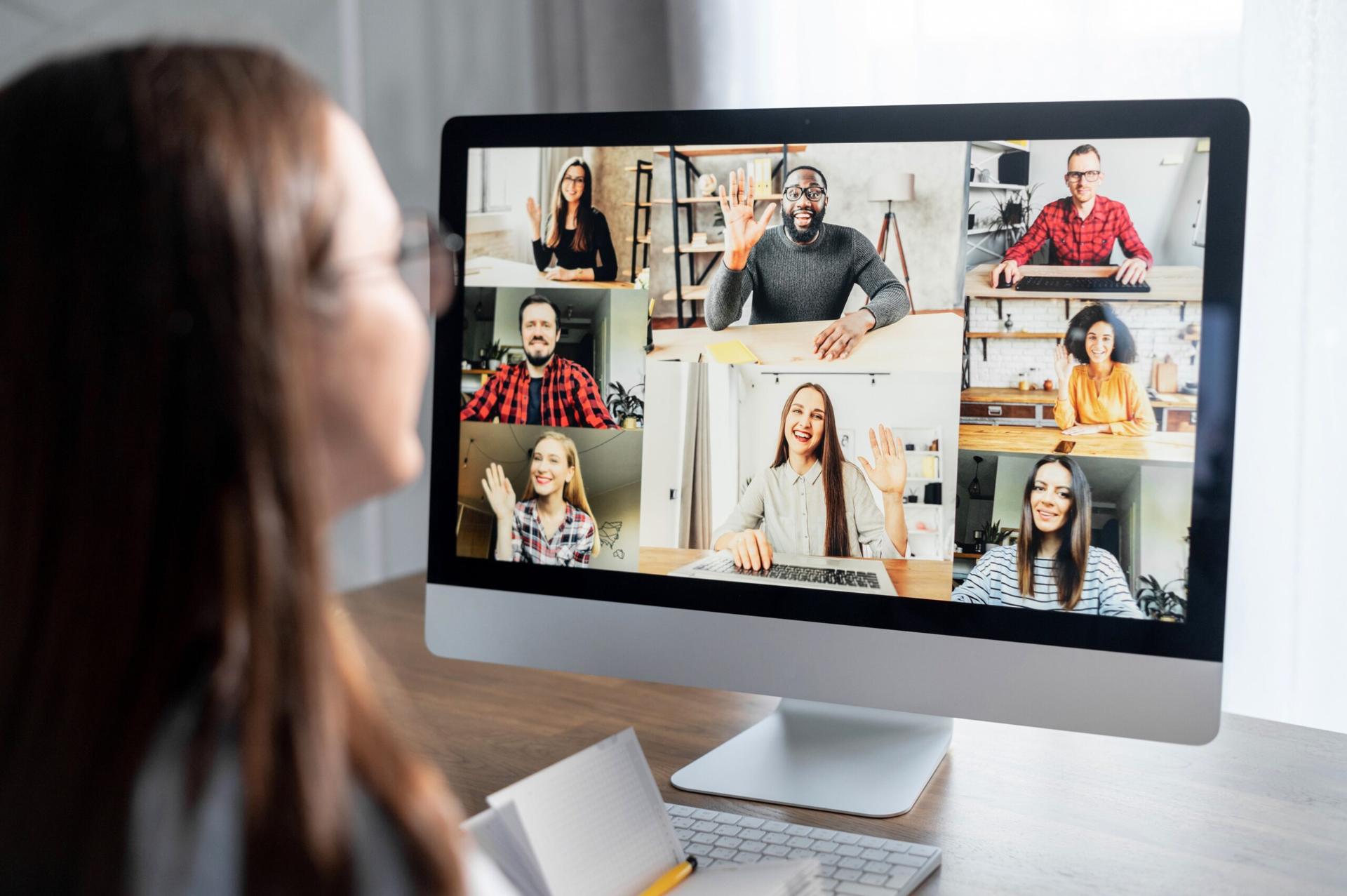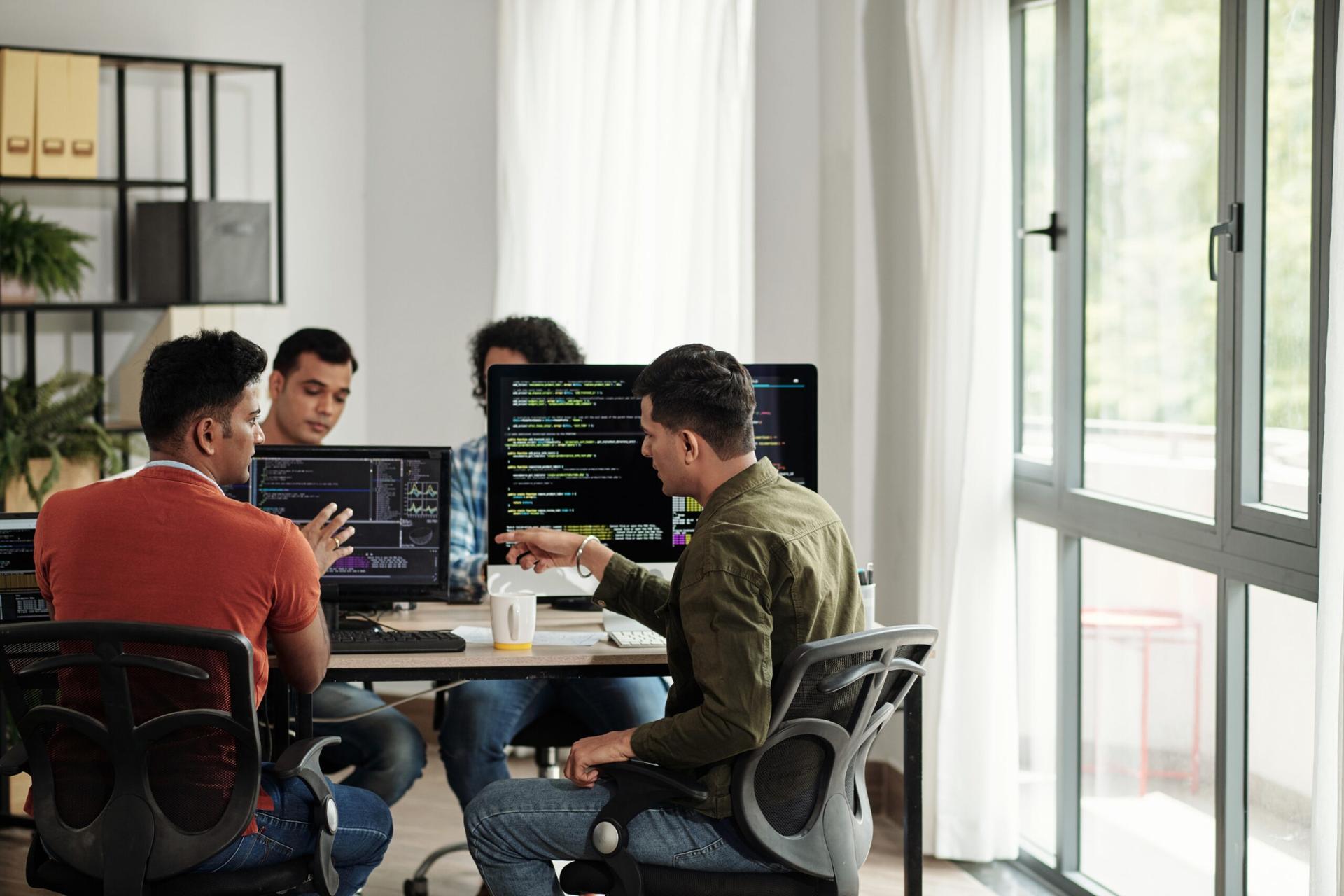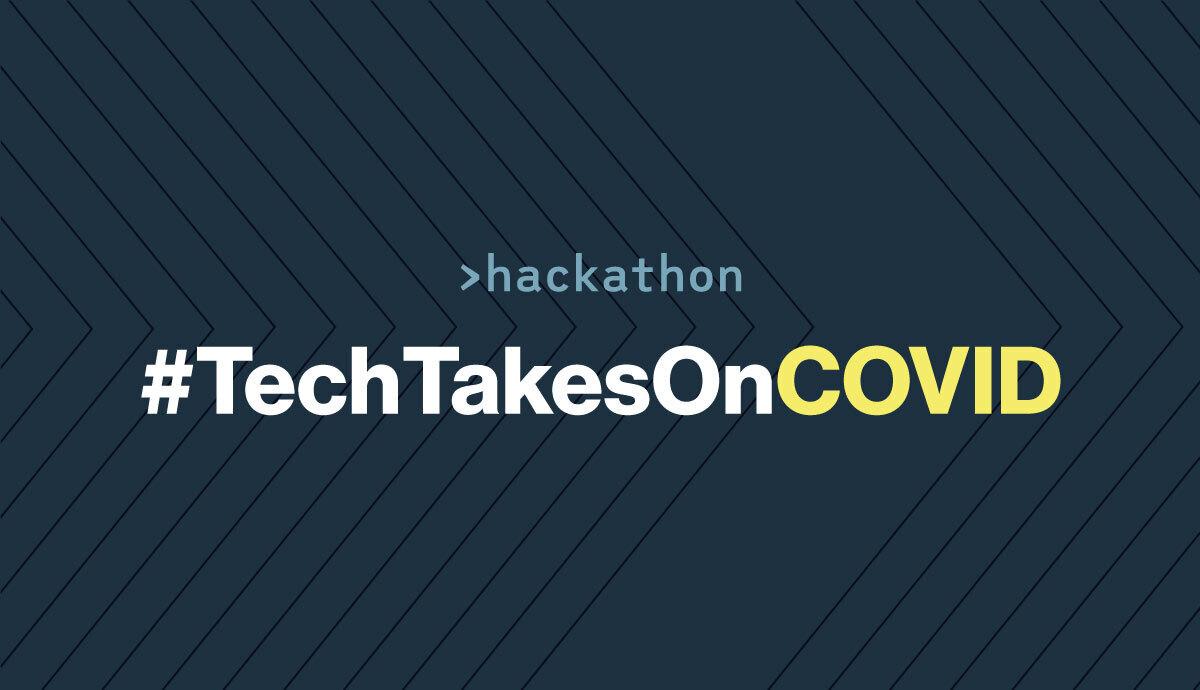
Engineering leadership | Blog Post
#TechTakesOnCOVID Hackathon winners: better research, faster testing and emotional support
Linzi Nield
Share this post
The toll that the COVID-19 pandemic has taken on daily life can’t be overstated. Yet imagine what life would have been like during the COVID-19 pandemic if it had happened fifteen years ago. Tech has provided us a number of tools to keep us safe and sane. We can have a face-to-face conversation with loved ones in any part of the world while maintaining social distance. We can enjoy almost any movie, tv show, book, or song without leaving our homes. And, though it’s certainly a luxury not available to everyone, many people have been able to transition to remote work with minimal disruption.
Did you wonder what other roles tech could play in improving day-to-day life in this challenging time? We did too. Terminal hosted the #TechTakesOnCOVID hackathon to work on apps that make a positive impact on any of the pain points that COVID-19 has caused. The response was staggering: The contest received 140 projects over 15 days, and over 650 participants created apps for everything from innovative ways to thank healthcare workers to easy solutions to triage medical advice. In exchange, Terminal donated over 8,500 USD to charities of the winners’ choosing.
So which project got the grand prize? What did the tech community come up with when it took on COVID? Here are the winners of the #TechTakesOnCOVID Hackathon:
1st place winner: Collabovid
Researchers all over the world are racing to learn as much as they can about SARS-CoV-2. But getting that research published? The process isn’t quite so speedy. New preprint versions of SARS-CoV-2 research become available every day, but that research requires a long peer review process before it can be officially published in a journal. “With normal scientific publishing, it takes, on average, half a year before something is published. That obviously does not work right now,” says Jonas Dippel, one of the project’s creators.
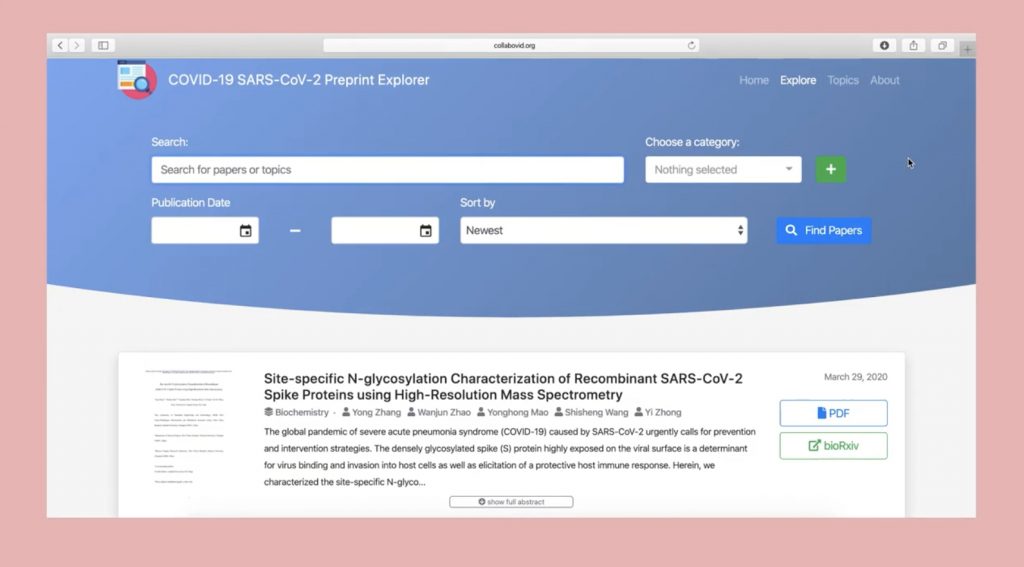
Collabovid accesses, sorts, and classifies preprints, allowing you to search for new information about COVID-19 as it becomes available on preprint servers medRxiv and bioRxiv. Research is classified into topics using the COVID-19 Open Research Dataset Challenge, making it easy for users to explore and rate papers based on how relevant they are to their questions. Collabovid’s sorting and classification functions are critical to making the research usable. “Preprints are not reviewed, so it is kind of hard to get insights,” says Dippel. “That’s where tech, AI and machine learning technology can jump in and make that content searchable to help researchers find what they want.”
The Collabovid team was excited about the prospect of using a hackathon as a force for good, and found that it gave them the perfect avenue to help out. “With this crisis in particular, speed counts, and I think hackathons are a really good method to bring ideas out and build something good, fast,” says Dippel.
What’s next: Collabovid currently classifies papers based solely on their abstracts. The project creators hope that future versions would use a paper’s complete text to get more accurate classifications. The team also plans to expand Collabovid to search other preprint servers beyond medRxiv and bioRsiv. Finally, the team plans to bring in verified experts to evaluate and review the papers informally to help distinguish research quality.
Terminal donated 3,000 USD on Collabovid’s behalf to #LeaveNoOneBehind, a nonprofit that focuses on evacuating the 20,000 refugees facing a coronavirus disaster in Camp Moria in Greece.
2nd place winner: Notes for Support
Gina Choi, creator of Notes for Support, knows a thing or two about the psychological toll that social isolation can play. She’s a high school junior in the Bay Area who had to quarantine for a month because of a rare eye disease. She felt an overwhelming sense of loneliness, depression, and disconnection during that time, but her friends found ways to make sure she knew they were thinking about her. “One thing that really helped me was getting cards from friends and family,” explains Choi. “Getting those cards really showed that people still cared about me and that they hadn’t forgotten about me. It was deeply touching and I want to bring that same support to healthcare workers and patients right now.”
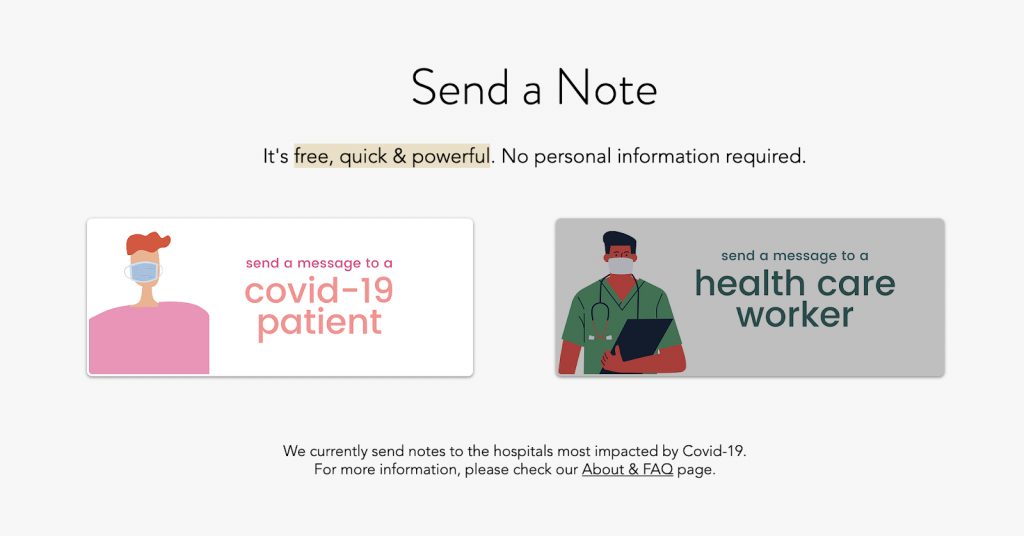
So Choi designed a website where anyone can anonymously write an encouraging note to a healthcare worker or coronavirus patient. The notes are printed and mailed to hospitals, where they arrive in the hands of the people who need them most. “The reason I wanted to print out the notes, instead of sending them electronically, is because I think that receiving a physical note is just far more personal than pixels on a screen,” says Choi.
So far, over 1,400 cards have been sent to 13 hospitals, and Choi is overjoyed at the impact the notes have had. “One hospital in Brooklyn called me and told me that everyone was so grateful when they received the cards,” says Choi. “Another hospital told me that their employees were sending selfies of themselves with their cards, which was really sweet. It’s been really rewarding.”
What’s next: Choi wants to make it easier for hospitals to get notes to patients and doctors. She plans to create software that will automate message sorting for hospitals.
Terminal donated 2,000 USD on Notes for Support’s behalf to California’s Stanford Medical Center to support COVID-19 research and care.
3rd place winner: M-VIC19 McMarvin Vision Imaging for COVID19
The lack of testing for COVID-19 is stunting outbreak management. There are limited testing kits for RT-PCR, and even when testing kits are available, the results have variations and false positives. But there’s an alternative: chest CT scans can be faster and more accurate. So the team behind M-VIC19 created an AI diagnosis tool to help doctors and radiologists automatically detect infected areas inside the lungs. Unlike testing for RT-PCR, diagnosis with chest scans can help doctors pinpoint exactly where in the lungs the infection has taken hold. And they’re getting great results: The vision imaging tests have been 89% accurate on real-world corona patients.
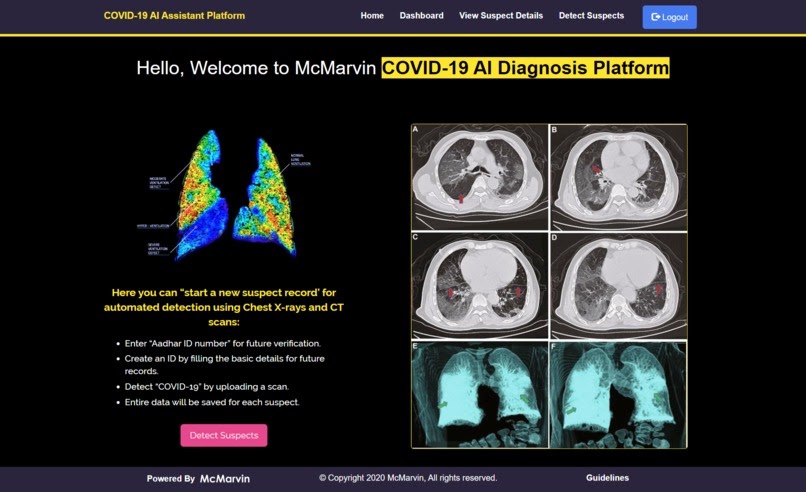
“We wanted to build an AI solution that could help doctors and radiologists save some time and get results quicker,” says Sonu Kumar, a co-founder of McMarvin. “AI is one of the most important things that can help us battle this pandemic. AI is so fast and so good that it takes a couple of minutes to do a computation that, for a human, would take 10-20 years.”
McMarvin also built a centralized database to keep record of suspected cases COVID-19, which will help researchers learn about the disease using real-world data. “The only thing that matters right now is fighting COVID-19,” says Kumar. “We are trying to give our 100% to build something that could fight the pandemic.”
What’s next: The project is very close to getting seed funding, which would allow the team to build an all-in-one medical imaging platform for detecting and segmenting all respiratory diseases. In the meantime, McMarvin is continuing research by getting additional data on corona-infected patients to make their platform more accurate and robust.
Terminal donated 1,000 USD on McMarvin’s behalf to PM-CARES, which funds treatment and research for COVID-19 in India.
Honorable mention: Sequoia
People worldwide are working to flatten the curve and relieve the burden on healthcare workers. But it’s still all too easy for COVID-19 to overwhelm our hospitals. Sequoia is a triage system that connects people exhibiting symptoms with remote providers who aren’t located in pandemic hotspots. It distributes the load away from providers on the frontlines and prevents patients from going to hospitals unnecessarily. Sequoia is a two-way system between a user and healthcare provider. The user sends details of their symptoms via SMS and a remote provider gives them recommendations on what to do next: seek testing, see a specific level (1-4) of hospital, check in again later, stay at home. If a user does need to seek testing or further medical care, Sequoia will list nearby locations that have availability.
Honorable mention: Coaware
“The risk of child abuse and neglect just shot through the roof,” Kate Gordon Eller, founder of child welfare nonprofit The Gordon Foundation, recently said of the coronavirus. “The stress on everybody is growing every day… [And] you have all these kids who are home all day.” Experts say that increased risk comes from lack of daily structure, lack of information, and lack of human contact — in essence, all the effects of the COVID-19 pandemic. Coaware (COVID + Aware) is an application that features two simple tabs to help with child abuse: Signs and Symptoms and Emergency Contacts. The pair of young students who designed it aim to spread awareness about the indicators of child abuse and distribute information about who to turn to for help.
Honorable mention: Pose Party
Zoom calls have been a godsend for friends looking to stay connected while quarantined. But they’re often yet another sedentary activity in what feels like an endless stream of sedentary activities. So the Pose Party team decided to design a way to promote physical activity and encourage an entire group of friends to get out of their chairs and get active together. Pose Party is a game where players have to strike and hold a pose to earn the most points. The better their form, the more points they earn. Each round is fast-paced, with a pose that a player has to hold for a random time duration. After several rounds, the person with the most points wins.
Honorable mention: Delivran
Restaurants are only able to offer pick-up and delivery during shelter-in-place mandates. But delivery applications like UberEats, GrubHub, and Postmates take a 20-50% cut from orders and only pay out weekly or bi-weekly, which hurts struggling restaurants even more. Delivran allows restaurants to post their menus and accept orders. The app only charges 1 USD per delivery and allows restaurants to use their own employees to make deliveries, letting them keep more of their staff on the payroll. Plus, Delivran offers instantaneous pay out, getting cash into the hands of restaurant owners as fast as possible.
Honorable mention: Join A Metronome
The pandemic is putting musicians out of work and out of practice. Join A Metronome, or J.A.M., lets musicians play with each other from remote locations. It’s a free, globally-synced metronome that plays a 4/4 click that syncs with other devices, allowing bands to pick a song and play to the click. Bands can play together remotely and stream their performances to a live audience, which lets them stay connected with their fans and their bandmates.
Honorable mention: Syncify
Shared experiences are a great way to stay connected. Syncify allows friends to follow along with their friends while listening to audiobooks, radio, music and podcasts. Live Mode allows users to simultaneously tune into the same content and share the moment together in real time. Sync Mode allows users to see and enjoy what their friends have recently listened to so they can have a conversation about it later. Both modes allow people to be on the same listening journey, instead of consuming content in a vacuum with no one to talk to about it.
The full breadth of submissions for the hackathon revealed just how many bright and talented minds are working on COVID-19. It’s heartening to see the pandemic bringing people together to find solutions and help each other. We’re excited to see what additional projects will surface in the coming weeks, as the tech community continues to band together and fight the pandemic and its ill effects. You can explore the rest of the hackathon submissions here.
